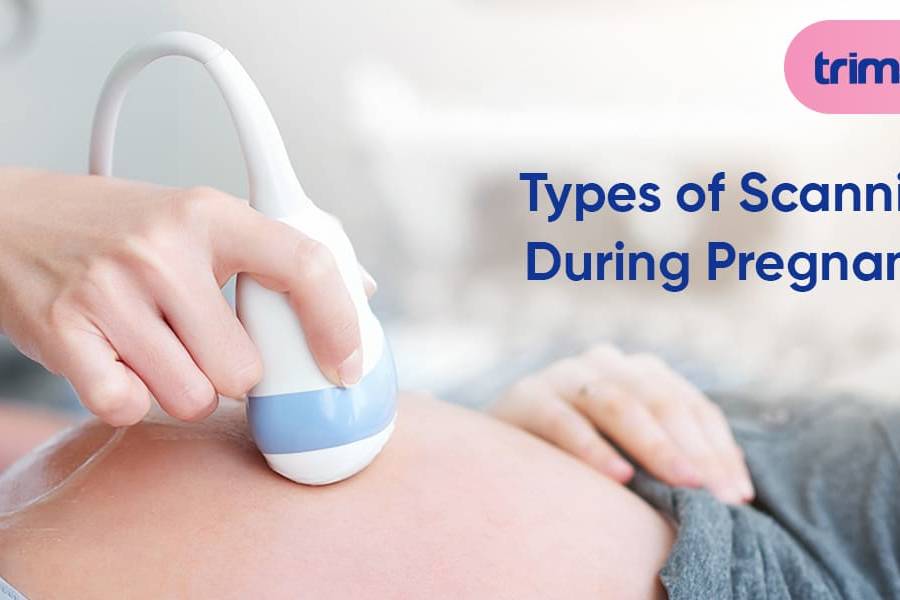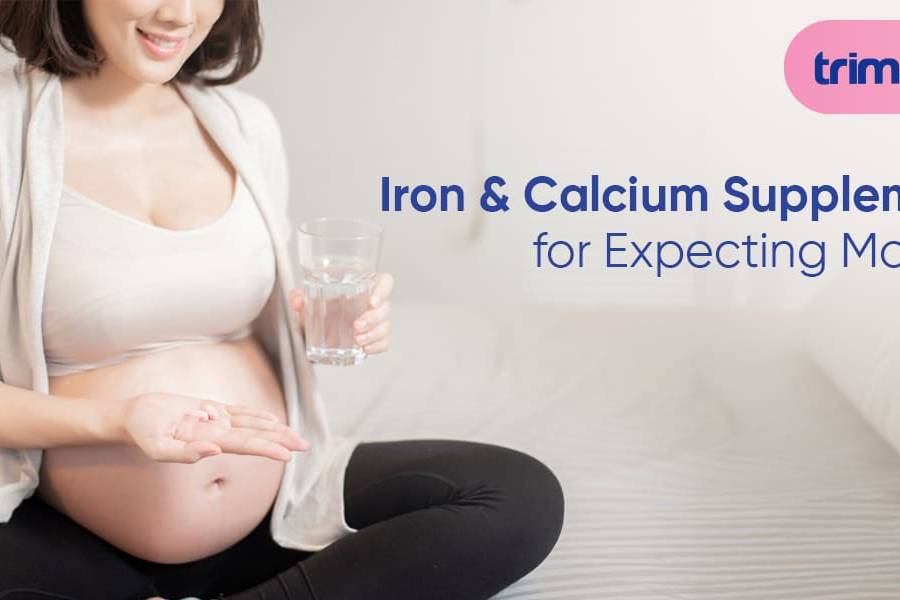When it comes to pregnancy and nutrition, Vitamin A is one of the few nutrients that is essential but generally overlooked. This incredible vitamin is important for vision, immune health and foetal growth.
For pregnant women, getting the proper balance of vitamin A is not only necessary for their own health but also essential for their baby’s development and well-being. Knowing why Vitamin A is important during this critical stage of life can help pregnant women make the right dietary and pregnancy supplement choices.
What is Vitamin A?
Vitamin A is a fat-soluble vitamin that comes in two main forms: preformed vitamin A (retinol and its esters), which occurs in animal foods such as liver, fish and milk and provitamin A carotenoids (such as beta-carotene), occurring in fruits and vegetables of red, oranges, yellow and dark green leafy vegetables including carrots, spinach and sweet potatoes. Both forms are needed for various functions of the body such as vision, immune function, reproduction and cell signalling.
Vitamin A: Why is it important?
One of the best-known roles of Vitamin A is to ensure good vision, particularly in dim lighting. But during pregnancy, its importance is more profound. Vitamin A for pregnant women helps in the formation of the baby’s organs, particularly the heart, lungs, kidneys, eyes and bones. It also helps in the proper formation of the circulatory, respiratory and central nervous systems. Furthermore, Vitamin A during pregnancy is important for the immune system.
The Key Benefits of Vitamin A During Pregnancy
Vitamin A is crucial to pregnancy nutrition and the health of both mother and child. Regardless of a balanced diet or prenatal supplements, receiving the appropriate level of vitamin A during pregnancy is essential.
- Supports foetal growth and development- Vitamin A for pregnant women is important for the formation of the organs of an unborn baby such as the heart, lungs, eyes and kidneys. It also plays a significant role in the development of nervous and circulatory systems, making it a key nutrient in pregnancy supplements.
- Promotes healthy vision- Adequate Vitamin A while pregnant helps in the formation of the baby’s eyes and retina. It also minimizes the risk of night blindness among pregnant women – an affliction linked to vitamin A deficiency in pregnancy.
- Boosts the immune system- This crucial vitamin enhances the immune systems of the mother and the baby, preventing infections. That’s why Vitamin A in prenatal vitamins is included to promote immune health throughout pregnancy.
- Helps tissue healing and postpartum recovery- Vitamin A and pregnancy are inseparable when it comes to tissue repair. It helps in the growth and healing of tissues in the mother and helps in the recovery of the body after giving birth.
- Helps red blood cell production- Along with iron, Vitamin A in pregnancy tablets ensures healthy red blood cell levels, avoiding anaemia and tiredness – a common concern for many pregnant women.
Consume Vitamin A with Care During Pregnancy
Although vitamin A during pregnancy is essential, overconsumption of this nutrient (particularly from retinol or animal liver) can be harmful. Sea foods are beta-carotene-containing foods such as sweet potatoes, carrots and spinach. Always check your prenatal pills for safe and adequate doses of vitamin A.
How Much is Enough? Understanding the Recommended Daily Intake
Safe levels of dosage for pregnant women
The recommended daily allowance (RDA) of vitamin A for pregnant women differs slightly from place to place, but generally, it’s about 770 micrograms(mcg) of retinol activity equivalents (RAE) per day. This supports foetal development without increasing the risk of toxicity.
Although Vitamin A in prenatal nutrition is necessary, pregnant women are recommended not to take more than 10,000 IU (3000 mcg RAE) of preformed Vitamin A from supplements or animal products since excessive amounts can cause birth defects.
Risks of deficiency vs Toxicity
Deficiency and excess consumption of vitamin A are dangerous. Deficiency may cause night blindness, weak immunity and complications in foetal development. However, excess consumption mainly of retinol, may be teratogenic i.e. it may lead to birth abnormalities.
Symptoms and signs of Vitamin A Deficiency during Pregnancy
Here are some symptoms that show the deficiency of vitamin A during pregnancy-
- Night Blindness and Vision Problems – Pregnant women may have trouble seeing at night or in dim light, which is a symptom of vitamin A deficiency.
- Weakened Immune Function – Low vitamin A levels affect immune system responses, making pregnant women more vulnerable to infection, which is a serious concern during pregnancy.
- Risks to foetal health- Vitamin A helps in foetal tissue growth. Deficiency of vitamin A may lead to congenital malformations, organ development impairment and low birth weight.
Best food sources of Vitamin A for pregnant women
To achieve safe and proper vitamin A intake, emphasise both animal and vegetable sources.
Animal based foods: liver, milk, eggs
Plant-based foods: Sweet Potatoes, Carrots, Spinach
Tips for absorption and balancing intake
- Combine Vitamin A-rich food with healthy fats (such as olive oil or avocado) to enhance absorption.
- Take Vitamin A from plant and animal sources for a balanced nutritional approach to pregnancy.
Should you take Pregnancy Supplements?
When pregnant women have Vitamin A deficiency or follow a restricted diet need prenatal pills to fulfil their Vitamin A requirements.
Pregnant women with conditions such as malabsorption, vegan diets or residing in low-resource environments may particularly benefit from pregnancy tablets consisting of Vitamin A.
Choosing the Right Form and Dosage
- Look for beta-carotene in pregnancy supplements, a safer alternative than retinol.
- Avoid taking any other vitamin A supplement until prescribed, particularly when your multivitamin already contains it.
Trimacare: Best pregnancy tablet for pregnant women
TrimacareTM by PlusPlus Lifesciences is designed and formulated by a team of doctors, pharmacologists, and nutritionists following the guidelines created by WHO and ICMR. TrimacareTM prenatal vitamins comes in 3 different packs for each trimester, as the pregnancy needs are unique in each trimester, and provides all the 20+ nutrients required by a pregnant woman and her child holistically and to supplement the needs perfectly.
As per the guidelines of ICMR, all three packs of TrimacareTM i.e., TrimacareTM 1 (pregnancy tablets for the first trimester of pregnancy), TrimacareTM 2 (pregnancy multivitamins for the second trimester of pregnancy), and TrimacareTM 3 (pregnancy supplement for the third trimester of pregnancy) contain 1600 mcg of Vitamin A. The whole composition includes 50% retinol and 50% beta-carotene.
Trimacare prenatal pill can be introduced at any stage of pregnancy. It is a one-stop solution which supplements all the micronutrient needs of pregnancy. Hence, there is no need to take multiple prenatal tablet every day for different nutrients. It is made with natural, plant-based ingredients thus it is safe and chemical-free.
TrimacareTM prenatal pill is recommended by leading doctors in India. This pregnancy supplement is available online (Amazon, 1mg, Flipkart) and offline at your nearest chemist.
Always consult your doctor before taking any Vitamin A supplement. He may recommend blood tests or dietary adjustments as part of your pregnancy and nutrition plan.
Risks of taking excess Vitamin A: What to be aware of?
Possible birth defects from overdose- Taking high amounts of Vitamin A while pregnant can lead to the risk of cardiac and central nervous system birth defects in children.
Expert tips for safe consumption of Vitamin A
- Consume various green, orange and yellow vegetables every day along with protein and dairy products to make it a balanced diet.
- Check vitamin A levels and ensure vitamin A content in prenatal pills is within the 10,000 IU per day limit.
- Vitamin A in the prenatal care works best with zinc. A comprehensive approach to pregnancy and nutrition ensures the mother’s and child’s good health.
Conclusion-
Vitamin A is necessary during pregnancy but must be taken in the right balance. With a proper diet and safe consumption of pregnancy supplements, pregnant women can support their baby’s healthy growth and safeguard their health. Make informed, conscious choices regarding pregnancy nutrition.
FAQs
Q1. Can I use Vitamin A pregnancy supplements?
Ans- Yes, but only if under a doctor’s supervision. It’s safer to take beta-carotene prenatal pills than retinol.
Q2. Why is Vitamin A crucial during pregnancy?
Ans- Vitamin A promotes foetal organ development, maternal immune function, and vision, and is, therefore, important in a pregnancy nutrition diet.
Q3. What foods contain safe Vitamin A for pregnant women?
Ans- Good sources are sweet potatoes, carrots, spinach, eggs, and milk. Plant foods are safe due to beta-carotene presence.
Q4. Can a deficiency in Vitamin A harm my baby?
Ans- Indeed. Vitamin A deficiency can disrupt the development of organs, increase the risk of infections, and cause low birth weight.













